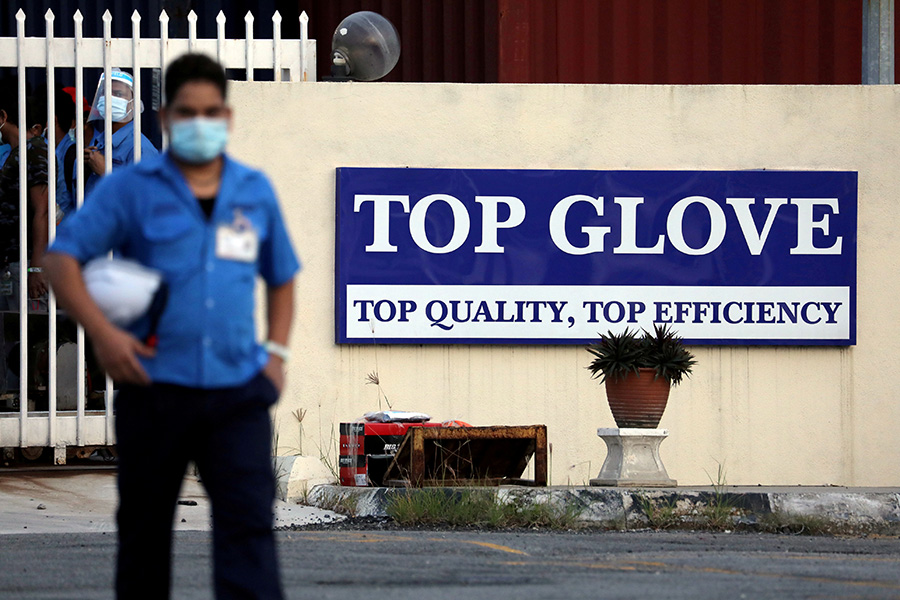
KUALA LUMPUR, Oct 21, 2021 (BSS/AFP) - The United States has barred imports
from a Malaysian latex glove maker over alleged labour abuses, the latest
firm from the country to face such a ban.
The relatively affluent Southeast Asian nation is home to millions of
migrant workers employed in manufacturing and agriculture, but critics say
they are often mistreated.
US Customs and Border Protection (CBP) announced the ban on Supermax
gloves on Wednesday, after a probe found indications of forced labour in the
firm's manufacturing operations.
"CBP has ample evidence to conclude that Supermax... and its subsidiaries
produce gloves in violation of US trade law," said agency official AnnMarie
R. Highsmith.
"Until Supermax and its subsidiaries can prove their manufacturing
processes are free of forced labour, their goods are not welcome here."
The agency did not give details about the alleged labour abuse at the
company, which exports to over 160 countries and can produce up to 24 billion
gloves a year.
But migrant rights activist Andy Hall, who investigated Supermax, said
workers' complaints ranged from being unable to leave factory compounds, to
cramped living conditions and unlawful salary deductions.
Hall said he hoped "this trade enforcement action against the company will
lead to a swift change in the abusive living and work conditions faced by the
company's workers in Malaysia".
Supermax did not respond to a request for comment.
Its shares were down more than 10 percent in afternoon trade on the Kuala
Lumpur stock exchange.
Malaysia's glove makers, whose business has boomed during the coronavirus
pandemic, typically employ workers from South Asia.
The US barred imports from the world's top latex glove manufacturer,
Malaysia's Top Glove, earlier this year over alleged labour abuses, but the
ban was lifted in September.
Two palm oil companies, Sime Darby Plantation and FGV Holdings, were also
hit with US import bans in 2020 over similar concerns.